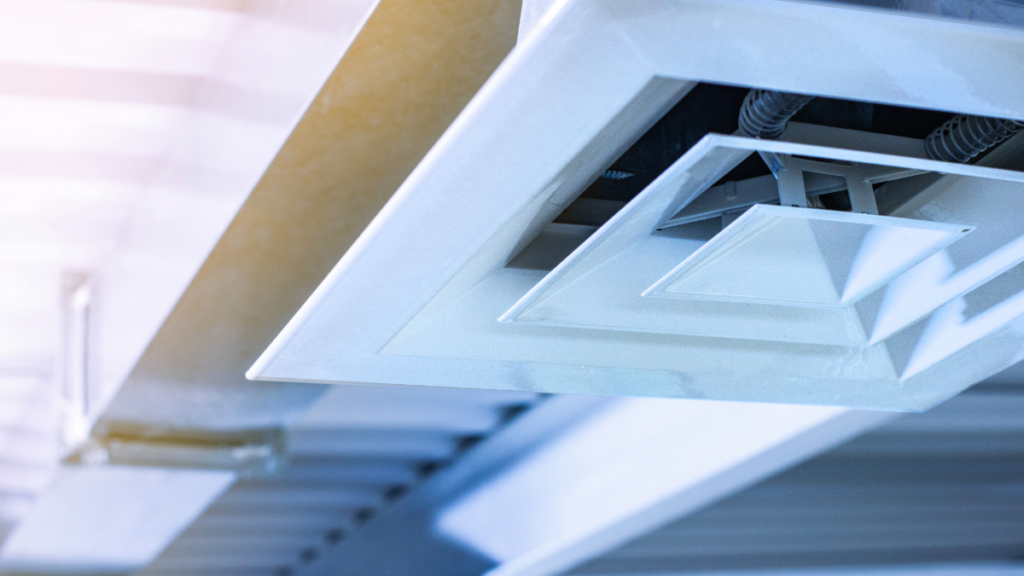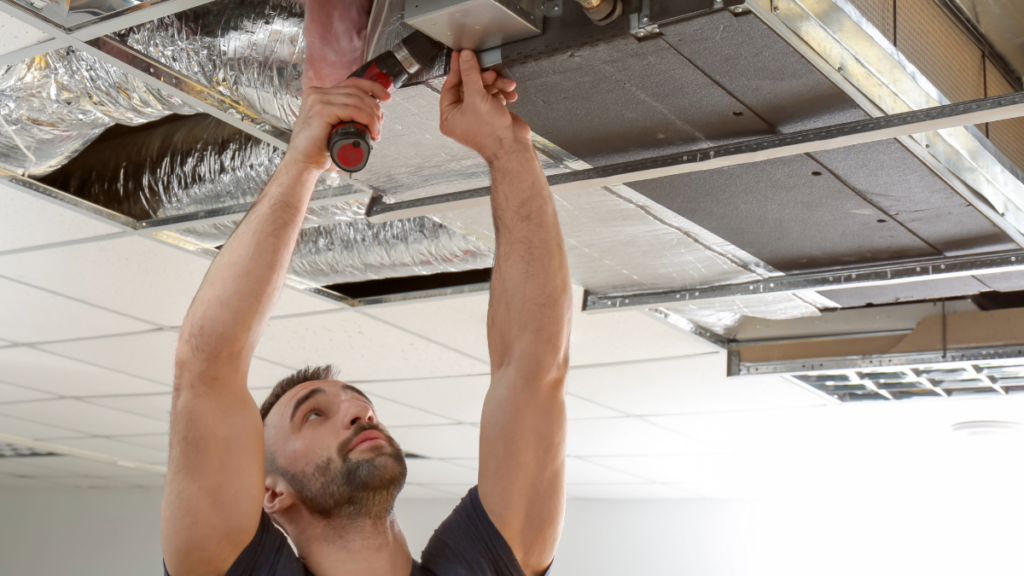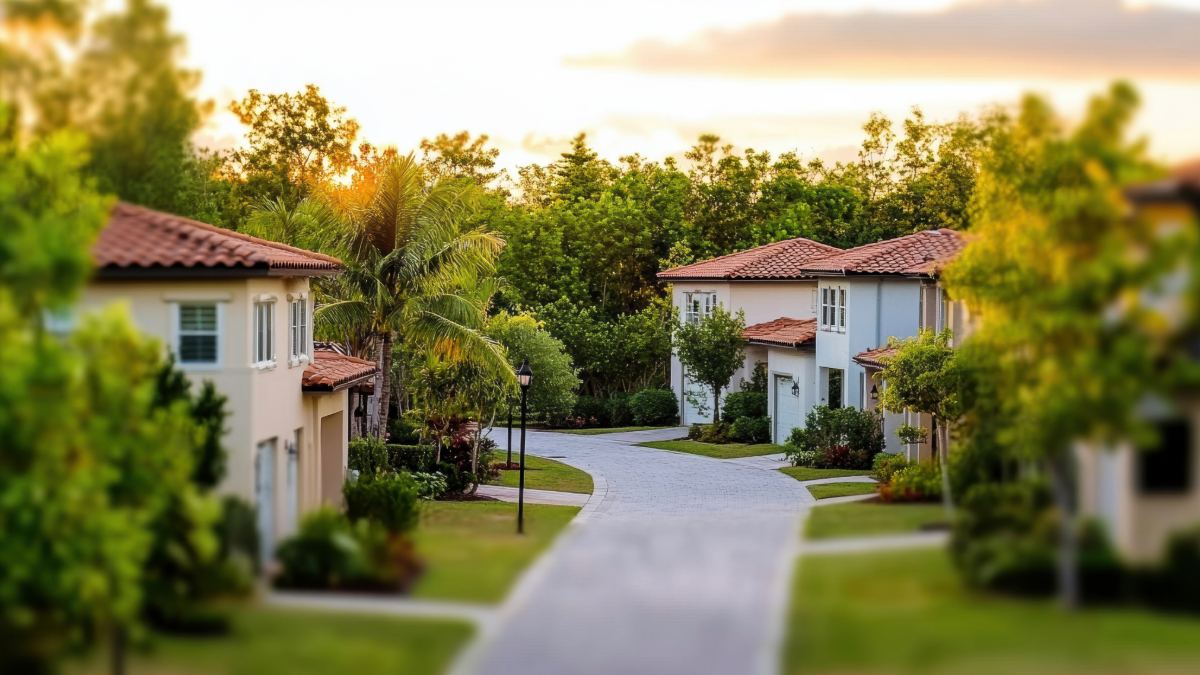Proper ventilation is essential for maintaining indoor air quality, HVAC efficiency, and overall comfort in both residential and commercial buildings. Without adequate airflow, indoor spaces can experience stale air, moisture buildup, and increased concentrations of pollutants, leading to health risks, structural damage, and higher energy consumption.
In homes, a home ventilation system helps remove dust, allergens, and humidity, reducing the strain on heating and cooling systems while creating a healthier living environment.
In commercial settings, ventilation is even more critical, especially in restaurants, healthcare facilities, and industrial spaces, where systems like a commercial kitchen exhaust fan remove grease, smoke, and harmful airborne contaminants to maintain clean air and regulatory compliance.
Modern ventilation solutions, such as whole house exhaust fans, hybrid ventilation systems, and HVAC air filtration, work alongside traditional heating and cooling systems to optimize airflow, improve air purification, and enhance energy efficiency.
By incorporating these systems, both homes and businesses can achieve better air quality, lower energy costs, and improved HVAC performance for long-term sustainability and comfort.
Table of Contents

Why Ventilation Is Crucial for Residential and Commercial Buildings
Effective ventilation is essential for maintaining indoor air quality, regulating humidity, improving energy efficiency, and supporting HVAC performance. Whether in a home or commercial space, proper airflow helps remove pollutants, control temperature, and reduce energy costs while ensuring a healthier, more comfortable environment.
The Importance of Ventilation in Residential Buildings
- Improves Indoor Air Quality – Removes dust, allergens, VOCs (volatile organic compounds), and airborne contaminants that can cause respiratory issues.
- Regulates Moisture Levels – Prevents humidity buildup, reducing the risk of mold growth, mildew, and structural damage.
- Enhances Comfort & Temperature Control – Helps maintain consistent indoor temperatures, reducing stuffy or stagnant air.
- Reduces Dependence on HVAC Systems – Proper airflow reduces excessive heating and cooling needs, lowering energy bills and preventing HVAC overuse.
- Odor and Pollutant Removal – Improves air freshness by eliminating cooking odors, pet dander, and indoor pollutants.
- Boosts HVAC Air Filtration – Supports HVAC efficiency by reducing airborne particles that clog filters and restrict airflow, ensuring better system performance and longevity.
The Importance of Ventilation in Commercial Buildings
- Ensures Compliance and Safety in Key Industries – Proper ventilation is crucial in restaurants, healthcare facilities, manufacturing plants, and laboratories, where airborne contaminants, grease, chemicals, and biological pollutants must be effectively removed to protect workers, customers, and equipment.
- Prevents Airborne Contaminants – Reduces exposure to harmful chemicals, dust, and fumes in factories, offices, and commercial kitchens, improving indoor air quality.
- Supports HVAC Efficiency & Energy Savings – Enhances air circulation, reducing strain on commercial HVAC systems and lowering operational costs by preventing overuse and system inefficiencies.
- Controls Humidity & Heat Levels – Manages moisture and temperature in high-traffic areas, preventing mold growth, condensation buildup, and excessive cooling or heating demands.
- Enhances Energy Efficiency & Sustainability – Contributes to green building standards, improving HVAC performance, reducing waste, and supporting LEED certification efforts.
Proper ventilation is not just about air movement, it is a key factor in energy efficiency, air purification, and HVAC system longevity. Whether in a home or commercial building, investing in optimized ventilation solutions leads to lower energy costs, better indoor air quality, and long-term comfort and safety.

Types of Ventilation Systems and Their Benefits
Ventilation systems play a critical role in indoor air quality, humidity control, and HVAC efficiency. They fall into three main categories: natural, mechanical, and hybrid ventilation, each suited for different environments and needs.
Natural Ventilation
Natural ventilation relies on windows, vents, and structural openings to allow air movement without mechanical assistance.
It is most effective in mild climates where outdoor air quality is good and natural airflow is sufficient. While it is energy-efficient and low maintenance, it may not provide adequate air exchange in areas with poor air circulation or high pollution levels.
Mechanical Ventilation (Forced Ventilation)
Mechanical ventilation uses fans, ducts, and exhaust systems to actively control airflow. This method is essential for modern homes and commercial spaces where natural ventilation alone is insufficient. Common types include:
- Exhaust Ventilation Systems, such as whole house exhaust fans and commercial kitchen exhaust fans, which remove stale air, moisture, and pollutants from specific areas.
- Supply Ventilation Systems, which introduce fresh outdoor air while filtering out contaminants.
- Balanced Ventilation Systems, which combine supply and exhaust fans to maintain consistent airflow throughout a building.
- Energy Recovery Ventilators (ERVs) and Heat Recovery Ventilators (HRVs), which transfer heat and moisture between incoming and outgoing air to improve energy efficiency and reduce HVAC workload.
Hybrid Ventilation Systems
Hybrid ventilation combines natural and mechanical methods to optimize airflow, indoor air quality, and energy efficiency. These systems adjust based on occupancy, outdoor conditions, and air quality needs, making them ideal for smart homes, energy-efficient buildings, and commercial spaces with fluctuating ventilation demands.
Hybrid systems may include automated dampers, sensors, and smart controls that regulate when to use mechanical ventilation versus passive airflow.
For example, on mild days, a hybrid system might rely on natural ventilation to reduce HVAC use, while on humid or polluted days, it shifts to mechanical ventilation for better air filtration and moisture control. When paired with HVAC air filtration, hybrid ventilation ensures effective pollutant removal and optimal indoor air circulation while minimizing energy waste.

Custom Air Conditioning & Air Quality’s Ventilation Services
At Custom Air Conditioning & Air Quality, we understand that effective ventilation is key to HVAC efficiency and indoor air quality. Whether in residential homes, commercial kitchens, or industrial buildings, proper ventilation ensures cleaner air, balanced humidity, and improved energy efficiency.
Our expert ventilation services are designed to help both homeowners and businesses maintain safe, comfortable, and energy-efficient environments.
Residential Ventilation Solutions
We offer a range of home ventilation system solutions that enhance air circulation and indoor comfort:
- Whole House Exhaust Fans – Improve airflow by expelling hot, stale air and replacing it with cooler, fresher air, reducing the need for air conditioning.
- Energy Recovery Ventilators (ERVs) & Heat Recovery Ventilators (HRVs) – Help regulate temperature and humidity while improving energy efficiency.
- HVAC Air Filtration & Purification – Reduce dust, allergens, and pollutants, ensuring clean, healthy air for your home.
Commercial Ventilation Services
For businesses, proper ventilation is critical for meeting industry standards and ensuring a safe working environment. We provide:
- Commercial Kitchen Exhaust Fans – Essential for removing grease, smoke, and odors, ensuring health code compliance and fire safety.
- Industrial & Office Ventilation Systems – Improve air quality, temperature control, and HVAC efficiency in high-traffic environments.
- Custom HVAC Air Filtration Solutions – Designed for businesses that need enhanced air purification, such as restaurants, healthcare facilities, and manufacturing plants.
With our expert installation, maintenance, and repair services, we help residential and commercial clients optimize their ventilation systems for better air quality, energy savings, and long-term comfort.
If you’re looking for efficient, high-quality ventilation solutions, Custom Air Conditioning & Air Quality is here to help!




